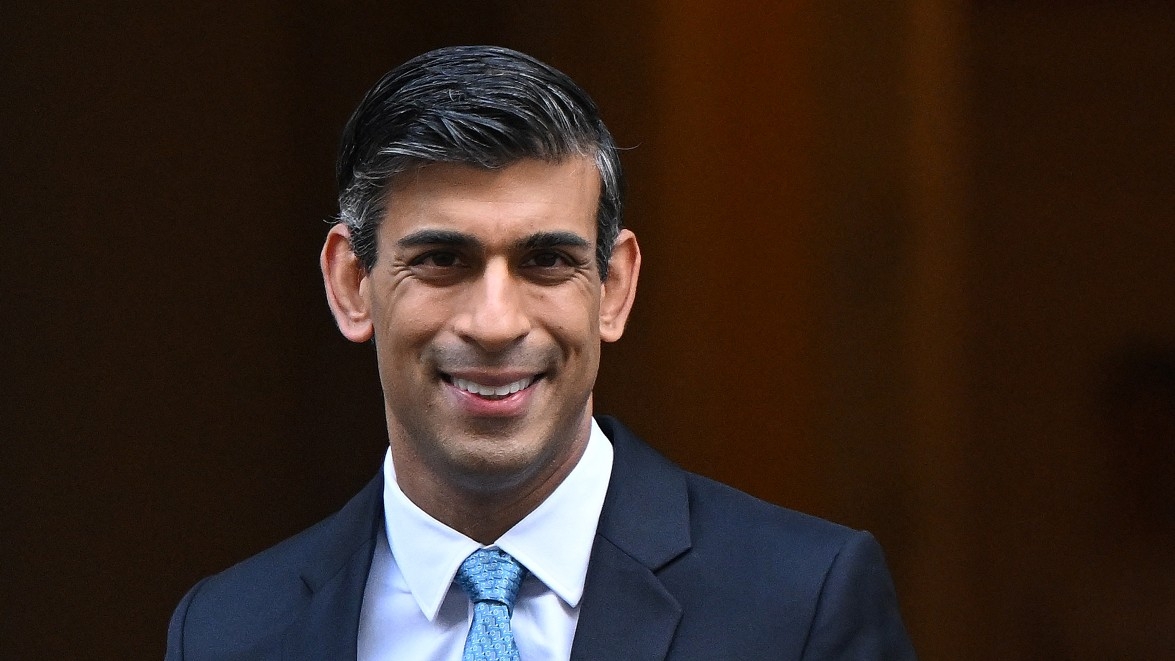UK Prime Minister Sunak speaks with Turkey's Erdogan, Qatari emir

UK Prime Minister Rishi Sunak on Friday spoke with his Turkish counterpart Recep Tayyip Erdogan, as well as Qatari Emir Tamim bin Hamad al-Thani, whom he congratulated on the hosting of the 2022 World Cup.
In his call with the Qatari emir, Sunak's office said the British premier "discussed deepening UK-Qatari defence collaboration" as well as trade relations "both bilaterally and through a future GCC trade deal".
"He congratulated Sheikh Tamim on hosting a successful World Cup, noting the excellent collaboration between the UK and Qatari police and armed forces to ensure a safe event, and said he looked forward to the remainder of the tournament," Sunak's office said in a statement.
Qatar is a major investor in the UK and London in particular. In the last two decades, it has acquired major assets through its sovereign wealth fund, the Qatar Investment Authority (QIA).
The QIA owns Harrods, the landmark department store in London, and the iconic Shard building, and is a co-owner of Canary Wharf Central, which includes vast tracts of property across central London.
Earlier this year, the UK government signed a new strategic investment partnership with Qatar, which will see the Gulf state invest up to $12.5bn in the next five years in a much-needed cash injection into the British economy.
However, Sunak's call with the Qatari leader comes after the Financial Times reported that Doha launched a review of its investments in London after the city's transport authorities effectively suspended all advertisements from the Gulf country following World Cup controversies.
Last week, the BBC also skipped the opening ceremony of the tournament and aired a pre-recorded report on Qatar's human rights instead, much to the ire of many fans of the game.
The England Football Association has previously said it will lobby Fifa on creating new labour laws in the Gulf state and "will push for a Migrant Workers’ Centre to be created in Qatar".
Earlier this month, Qatar's foreign minister, Mohammed bin Abdulrahman Al-Thani, condemned what he called "hypocrisy" from western countries criticising the country over alleged human rights abuses.
While Doha and London enjoy close ties, Qatari officials have become increasingly frustrated in recent weeks by the coverage of the World Cup in western nations, including the UK and France.
Boosting Turkey-UK trade
In addition to speaking with the Qatari emir, Sunak also had a chat with Erdogan on Friday, where Sunak "offered his condolences for the recent abhorrent terrorist attacks" in Turkey.
Last month, six people were killed and 81 wounded after an explosion hit Istiklal Avenue in the historic Beyoglu district in Istanbul. The bombing was the city's first apparent terror attack in six years.
Sunak's office added that the prime minister "committed to continue unlocking trade barriers to boost investment and collaboration" with Turkey.
"He reiterated the UK's backing for the rapid accession of Finland and Sweden" to Nato, the statement from Sunak's office said.
Both Sweden and Finland, who long maintained a position of neutrality and military non-alignment, have sought to join Nato in the wake of Russia's invasion of Ukraine.
Turkey has stalled the Nordic countries' requests to join the alliance over accusations that they are providing a safe haven to the outlawed Kurdistan Workers Party (PKK) and other groups linked to them.
Erdogan said last month that he expects to see "concrete steps" taken by Sweden towards Ankara’s security concerns before dropping his opposition to the Nordic country’s bid to join Nato, including the extradition of 33 individuals linked to Kurdish groups it considers "terrorists".
Middle East Eye delivers independent and unrivalled coverage and analysis of the Middle East, North Africa and beyond. To learn more about republishing this content and the associated fees, please fill out this form. More about MEE can be found here.





